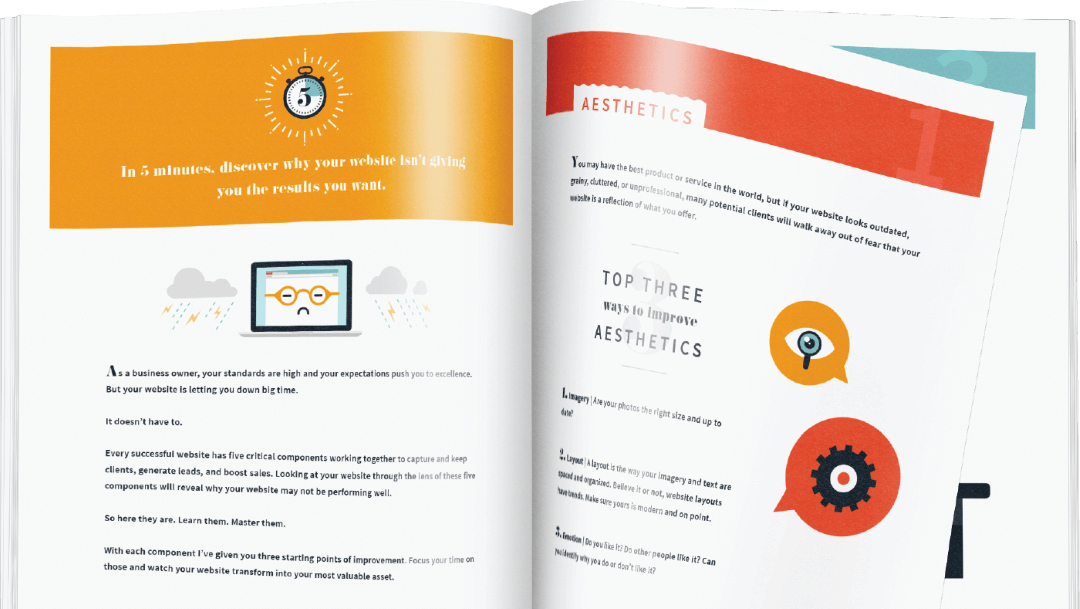Have you ever wondered if you could save time and money by running one ad campaign for both Facebook and Google Adwords? While that would be a dream come true, your results would be a huge bummer.
To discover why, let’s discuss the differences between the two platforms.
Think about how you interact with Google.
Why do you use Google? It’s usually to find a product, service, or answer, and fast.
Comparatively, how do you interact with Facebook? Usually as a way to pass time or connect with someone, right?
So, those on Google tend to be more engaged, and have high intent (often needing something solved fast), while Facebook users have less intent since they’re not frequently active buyers.
Since both platforms are a cost per click or cost per impression set up, each one has a price point that corresponds with the desired action taken. In essence, you get what you pay for.
Different users, different motivations
Google recognizes their users are going to be motivated to find an answer, which usually results in higher conversion rates per ad — you may not receive a lot of clicks, but the ones you get are likely to be paying customers. Consequently, Google is going to charge more per click.
On the flip side, since Facebook customers are generally more interested in their friend’s newest baby than purchasing a product or service, you’ll most likely have a lower conversion rate — you may receive a lot of clicks or impressions since you have a targeted market, but not a lot of paying customers as they’re not often ready to buy. Therefore, Facebook charges less per ad interaction.
But before you make up your mind based on cost, you need to be mindful of your business and who your customers are. While we all want high value customers, not all ads are going to go over well on Adwords.
For example, if you sell products to moms with small children, you have a huge target market on Facebook. Adwords, on the other hand, will put you up against websites like Amazon, Target, etc., who can afford to pay high dollar for ad placement. However, if you’re a service-based industry, like plumbing, Adwords is an excellent choice because you’ll be a top choice for local plumbing searches, and if someone is in the middle of a plumbing emergency, they will find you quickly through a Google search.
Which leads me to the next difference. Targeting.
Adwords and Facebook find their audiences in entirely different ways. Facebook is a powerful tool for demographic targeting. You can build an audience based on gender, geography, income level, interests, employment, etc. You can even take your current customer base and create what’s called a “lookalike” audience. Facebook will take your current audience and show your ad to people who have similarities to those already interested in you. You can even target people who have visited your website in the last 90 days, if you use Facebook’s pixel, as another example.
Adwords, however, creates its audience around keywords. While you can limit your campaign by geography and language, your ad campaign will be centered around words that your audience would use to find your product. To create that list, think about all the words, their variations, and even common misspellings, that could be associated with you, your business, and your product. That list is how Google knows who you are and how to connect your ideal customer to you.
What makes the most sense for your content?
The last difference to consider is how the ad is set up. Adwords has a strict character limit for your header and the ad itself, so you have to choose your words wisely. It also doesn’t allow images or video. As you’ve probably noticed, Facebook, on the other hand, liberally allows images and video, with very few limits on the amount of text. If you’re an imagery-based business, Facebook is your huckleberry.
Google Adwords
- Costs more per click
- Customers are more engaged
- Higher conversion rate
- Targeted keywords
- Targeted audience
- Powerful retargeting tools
- Limited word usage and no images or video
- Costs less per click
- Slightly less engaged audience
- Lower conversation rate
- Super targeted audience – demographics, interests, employment, custom audiences, lookalike audience
- Super targeted goals – pay per impression, sale, page like, website visit
- Can use image and video and a lot of copy is ok
While online advertising can seem overwhelming, determining the right platform for your business is a great place to start. With targeted advertising on the right platform, you’re setting yourself up for success right from the start.
If you have any questions, or would like help strategizing your online ad campaign, give us a call or send us an email! We love nothing more than helping businesses reach their perfect audience through online marketing.

